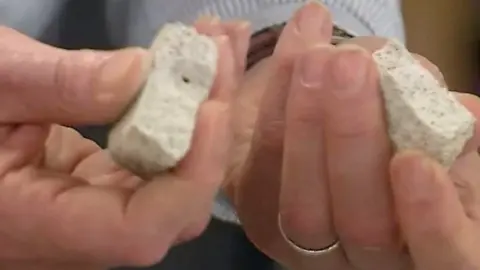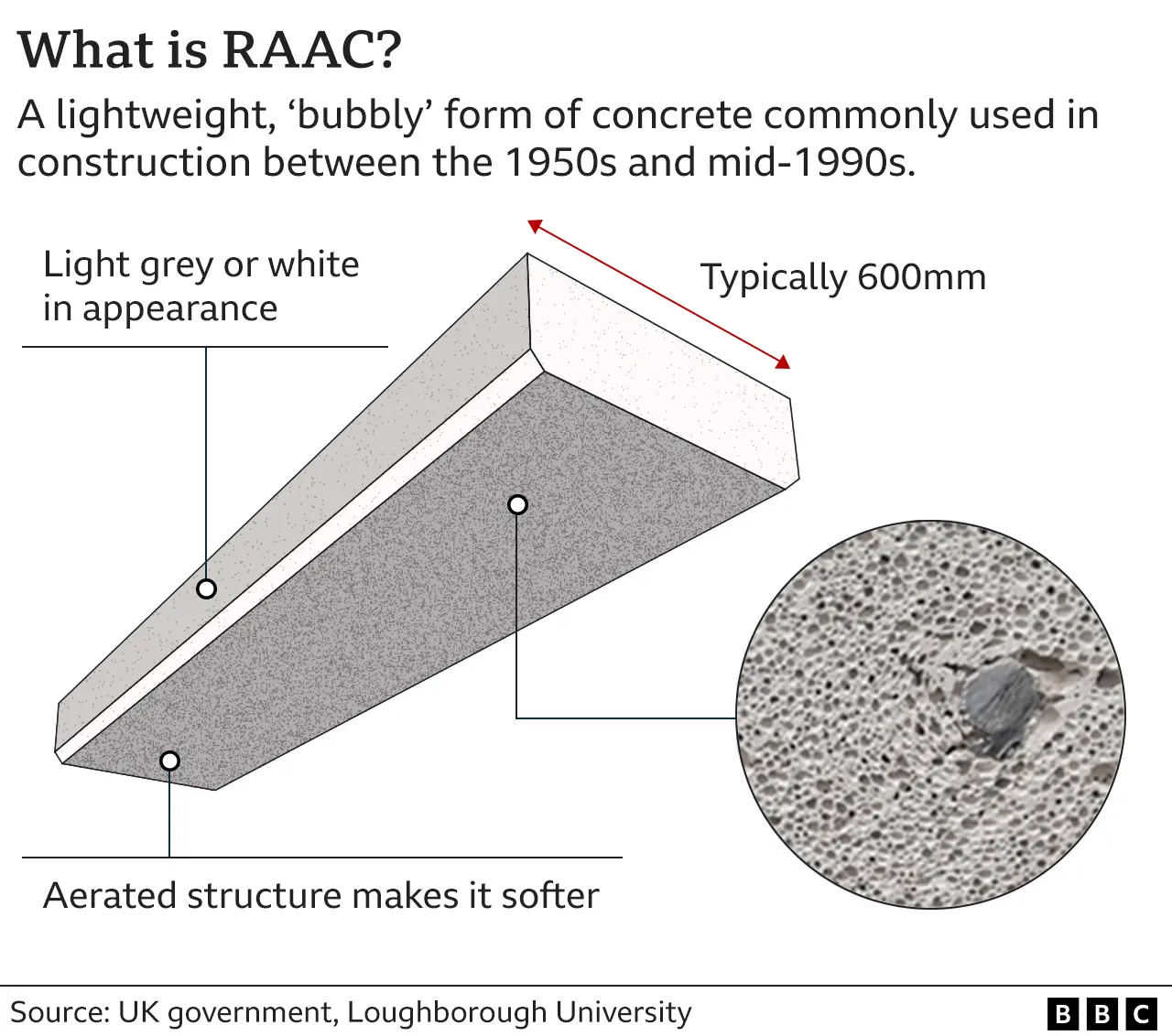Council suspects RAAC was used in hundreds of Aberdeen homes
 BBC
BBCPotentially dangerous concrete is likely to have been used in hundreds of properties in Aberdeen, according to the city council.
Thousands of council homes in Aberdeen are currently being reviewed for the presence of reinforced autoclaved aerated concrete (RAAC).
The council said RAAC is likely to have been used in about 500 properties in the Balnagask area.
The local authority is now writing to those who may be affected.
A council spokesperson said: "More than 22,000 council homes in Aberdeen are currently being reviewed for the presence of reinforced autoclaved aerated concrete, a lightweight building material used between the 1950s and 1990s.
"Although Aberdeen City Council is not expected to have many homes built with RAAC, the council is already working with independent structural engineers to inspect council properties to determine if RAAC is present and whether further investigations are needed.
"Work to date has established that RAAC is likely to have been used in around 500 properties in Balnagask. Today the council has written to these residents and owners on the next steps."

The spokesperson added: "We are liaising with tenants, private owners and occupiers, and landlords as a matter of priority.
"We will continue to keep residents informed and update our website with the latest information."
'Situation may be concerning'
The letter sent on Tuesday states: "Aberdeen City Council is committed to ensuring the safety of its residents.
"The information gathered will lead to the development of an action plan, to manage any risks identified (where appropriate), for further discussion with residents and owners.
"We understand that the situation may be concerning for residents and owners of properties impacted by RAAC. If you have any questions, please contact us at [email protected] or on 01224 070107. Alternatively, we have arranged drop in sessions for residents and owners of the impacted properties."
Meanwhile, the number of schools where RAAC is present in the city has been reduced from seven to three following testing.
RAAC has a lifespan of about 30 years, and concerns have mounted about the impact of water ingress on its safety.
It has led to widespread concerns about school, university and hospital buildings.
